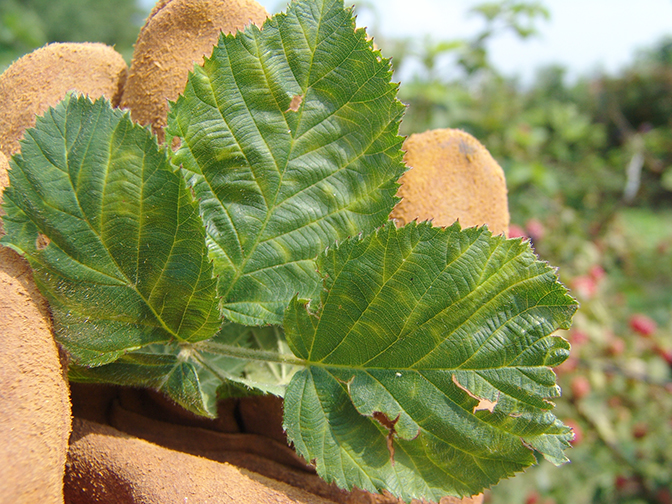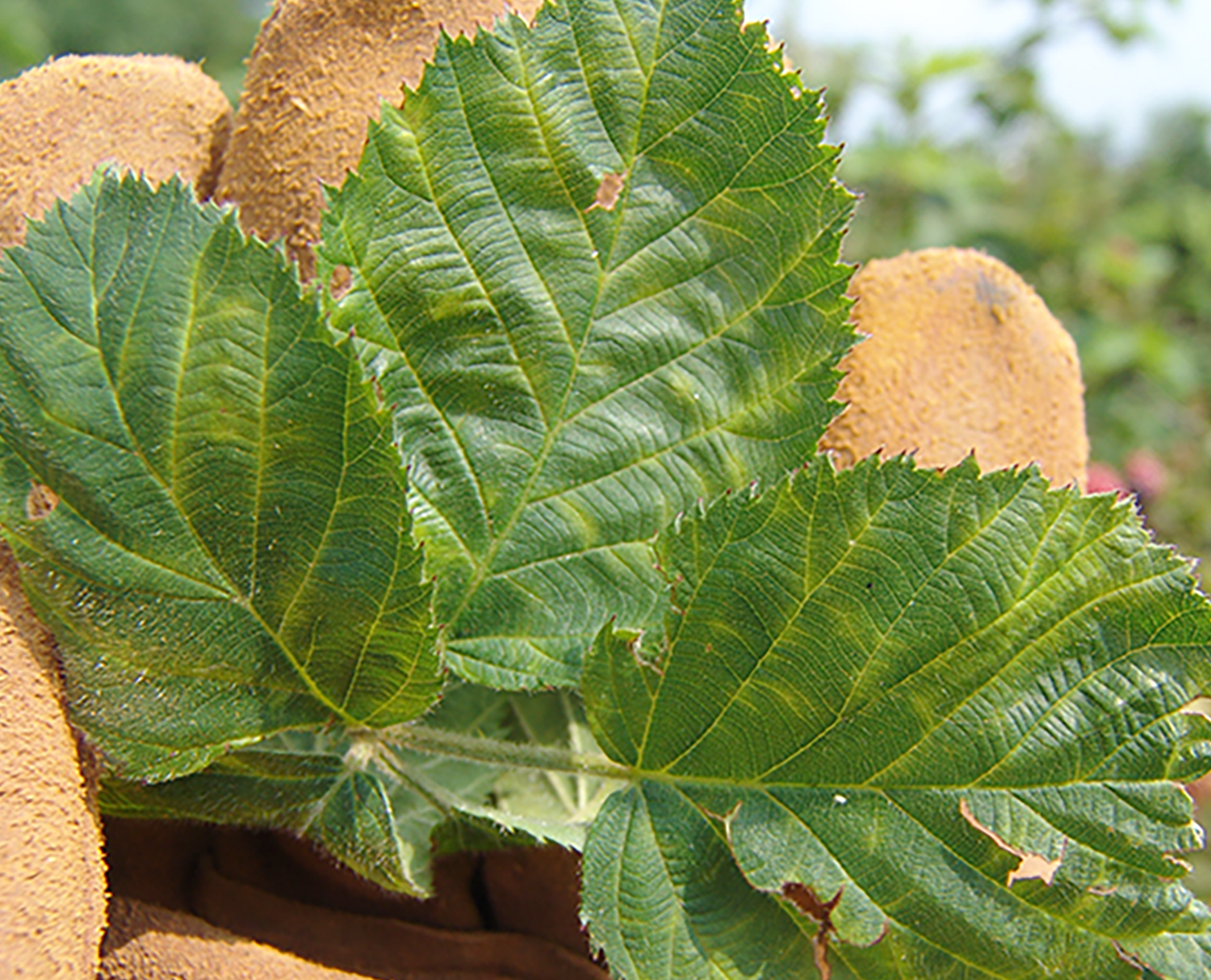With no chemical treatments to kill viruses in blackberries, University of Georgia plant pathologist Phil Brannen recommends Georgia producers grow tissue-cultured plants.
Tissue-cultured plants are often free of viruses. “And insects and nematodes can’t transmit the viruses to the young plant," said Brannnen. "Therefore, if the tissue used to start a new plant is virus free, then the end product will also be virus free.”
Planting what Brannen calls “clean plants” can delay the onset of viruses by many years. “There are still going to be viruses that come in from insects. But, in general, it’s just a lot better,” he said.
Since viruses can move through a blackberry plant unscathed, farmers who do not use tissue-cultured plants are at risk of producing crumbly fruit, or fruit that is very small and not appealing to consumers.
A combination of two or more viruses can, at times, kill the plant.
“Viruses are an extremely problematic issue with blackberries, probably more so (with blackberries) than any other commodity with which I work. It’s been in part because the industry has never really cleaned up the viruses in blackberries. We really don’t know all the different viruses that are out there,” Brannen said.
According to Brannen, a scientist at the University of Arkansas has recorded 30 different viruses. With those multiple viruses come 30 different ways blackberry plants are susceptible to disease damage.
“We’ve had real issues where people have not used tissue-cultured plants, and they’re just taking cuttings off blackberries they may have in the field and replanting them somewhere else,” he said. “The growers don’t have any idea that the plants they’re working with may have viruses and that those cuttings are infected with viruses.”
Brannen reiterates the importance of bringing in clean, noninfected plants, as preventative management is required to delay the onset of future viruses.
“Growers need to try to keep any of the blackberries that are wild in the woods killed off for some distance from the area where their plants are located. They also need to control the nematodes, which can spread viruses,” Brannen said. “We don’t recommend spraying for insects that would spread viruses, because we don’t see huge infestations of those bugs anyway.”
According to the UGA Center for Agribusiness and Economic Development, blackberries were grown on 778 acres in Georgia and produced a farm gate value of $5.4 million in 2014. Lanier County was Georgia’s largest producer of blackberries that year, with 138 acres of blackberries and a farm gate value of $1.2 million.








